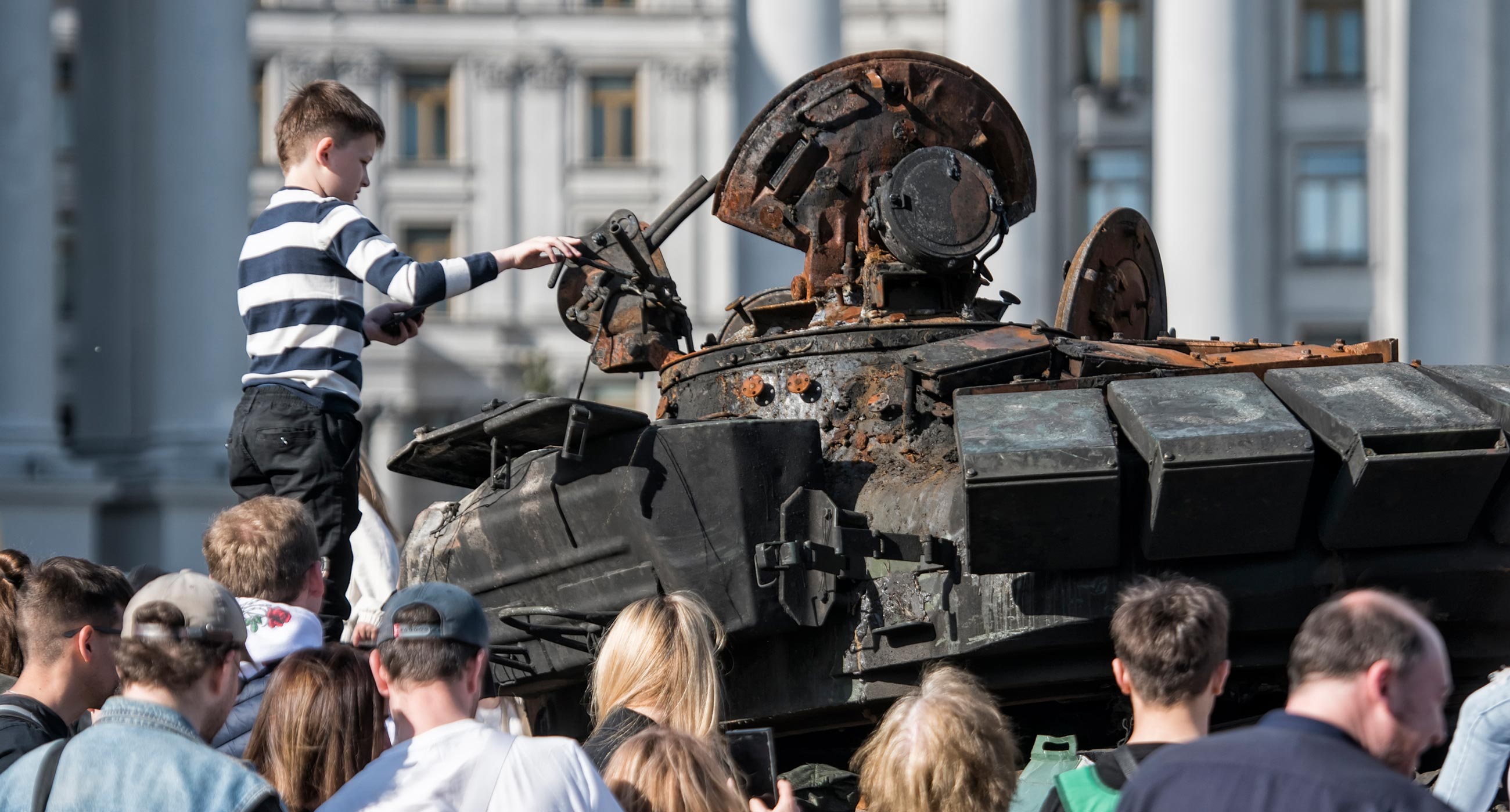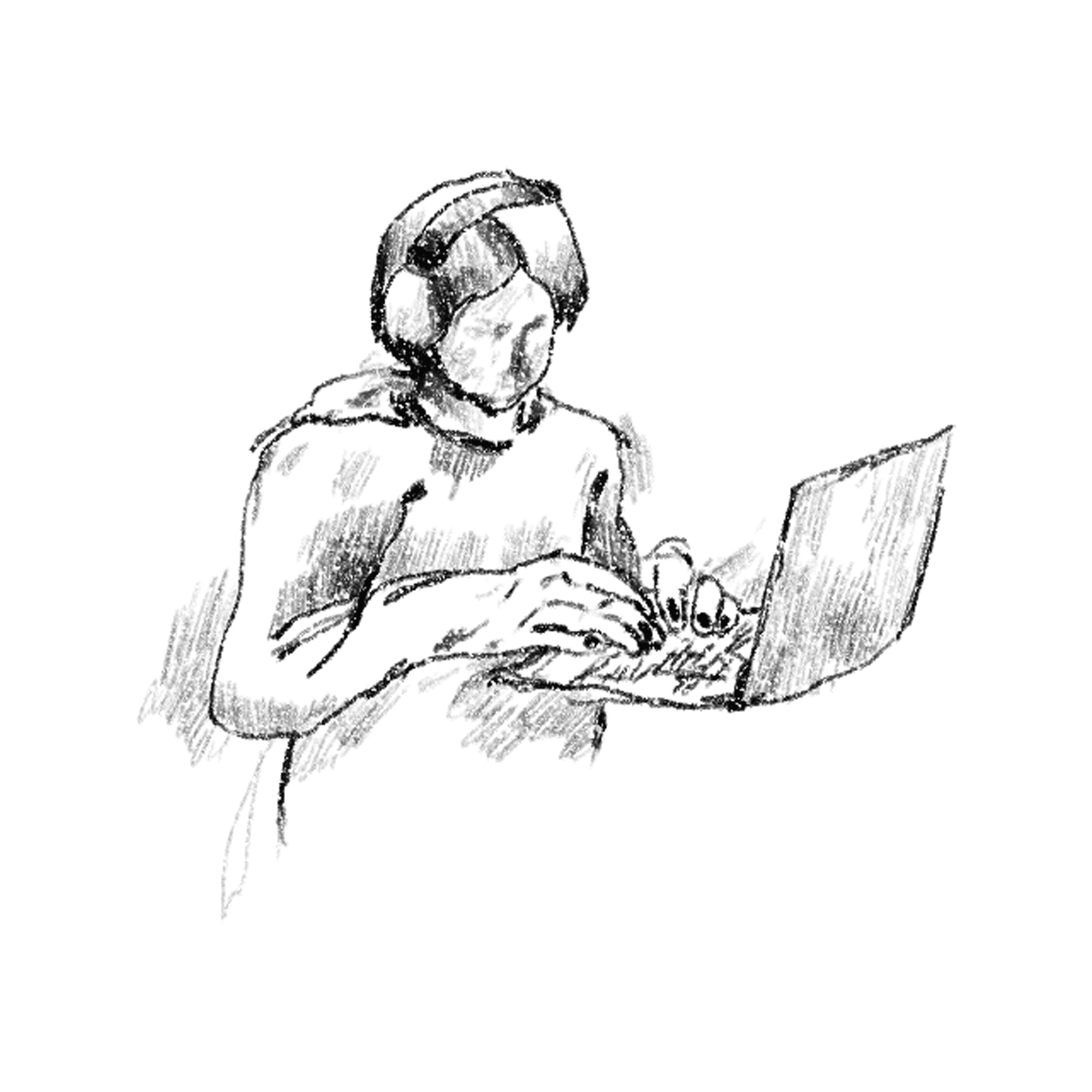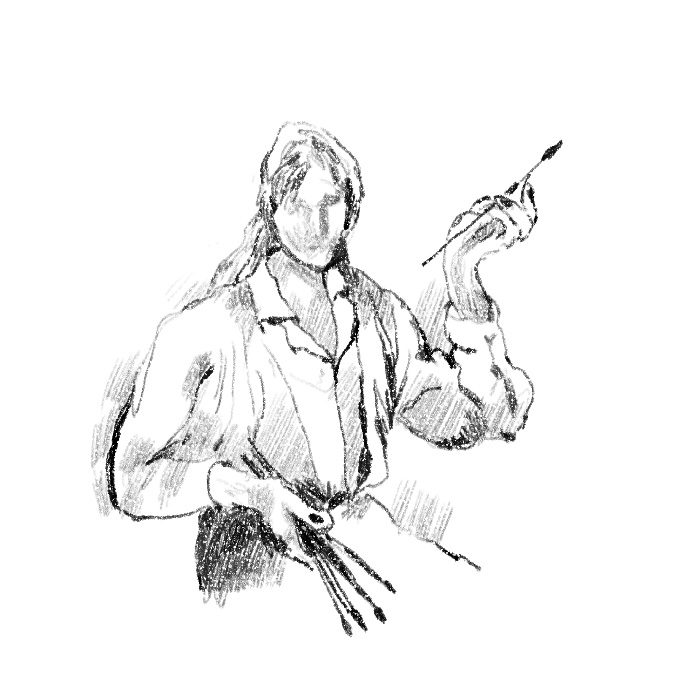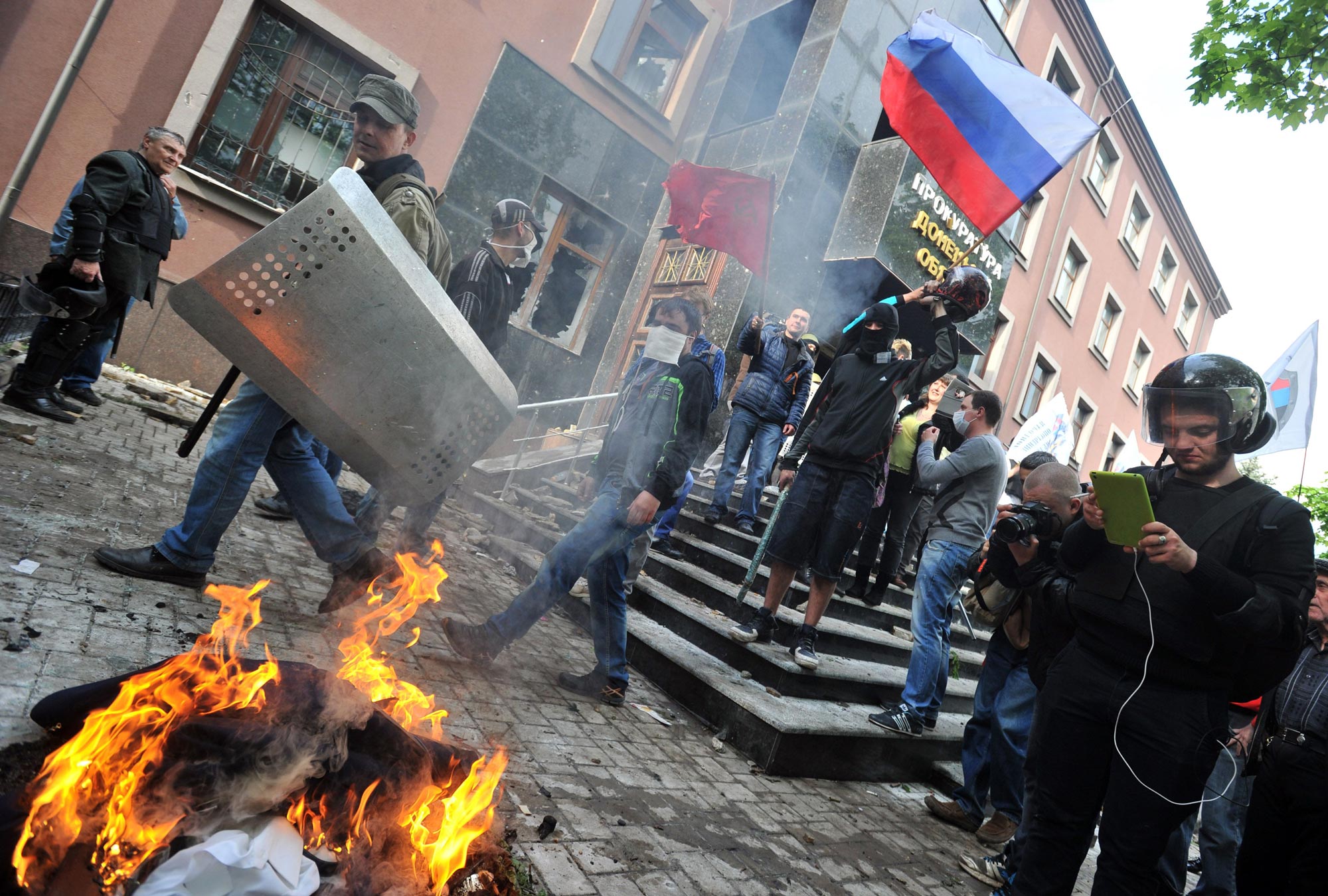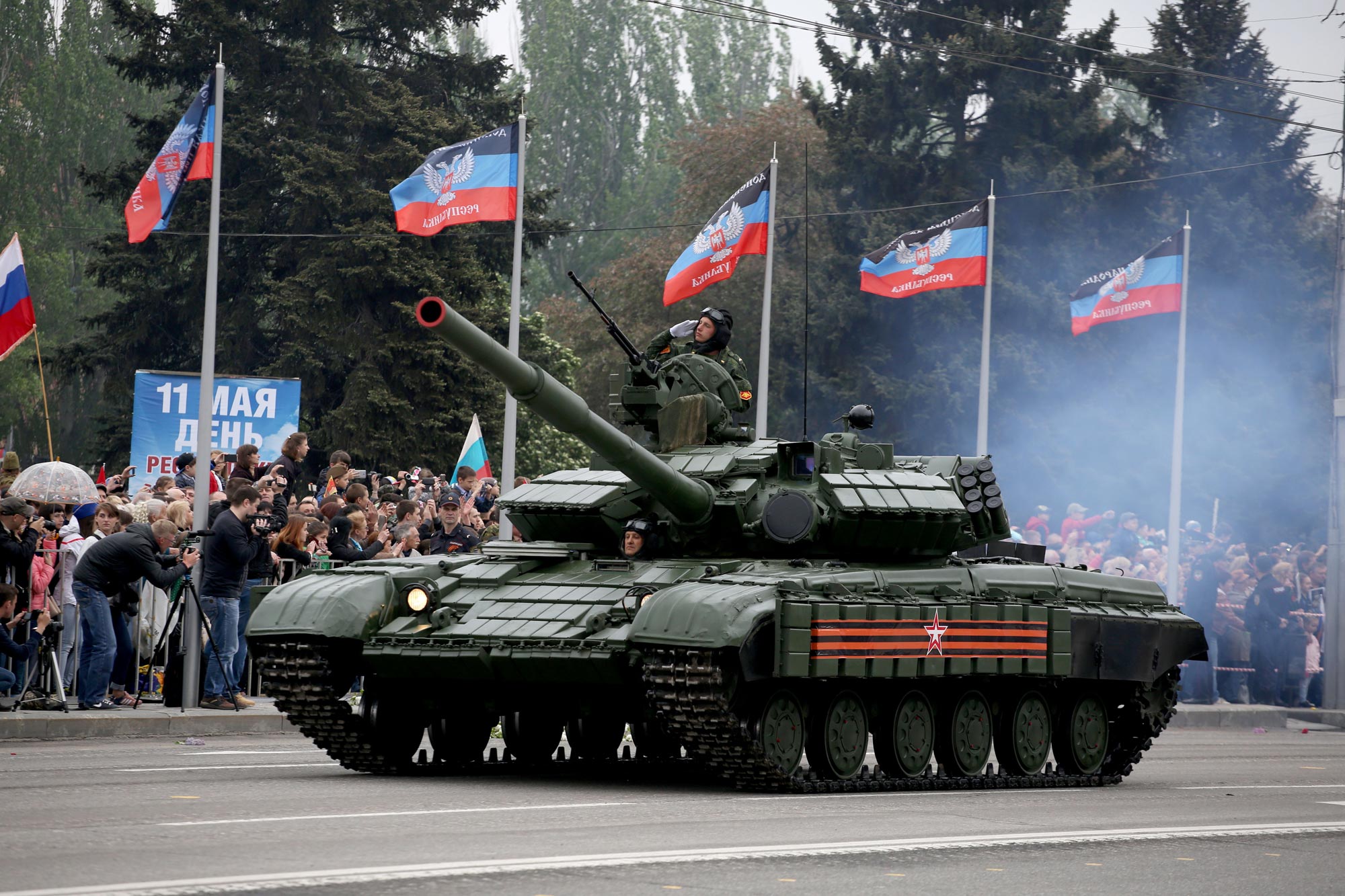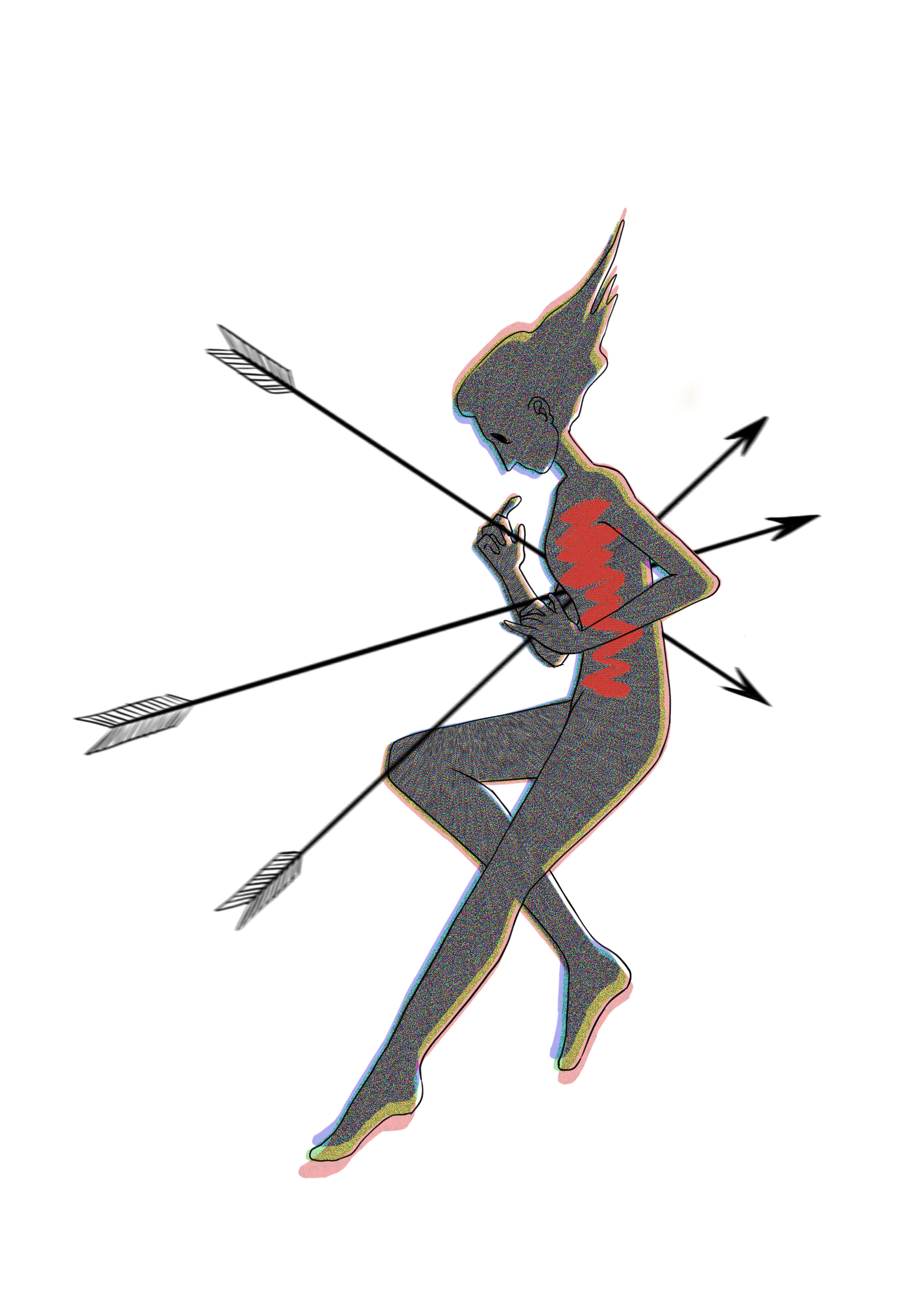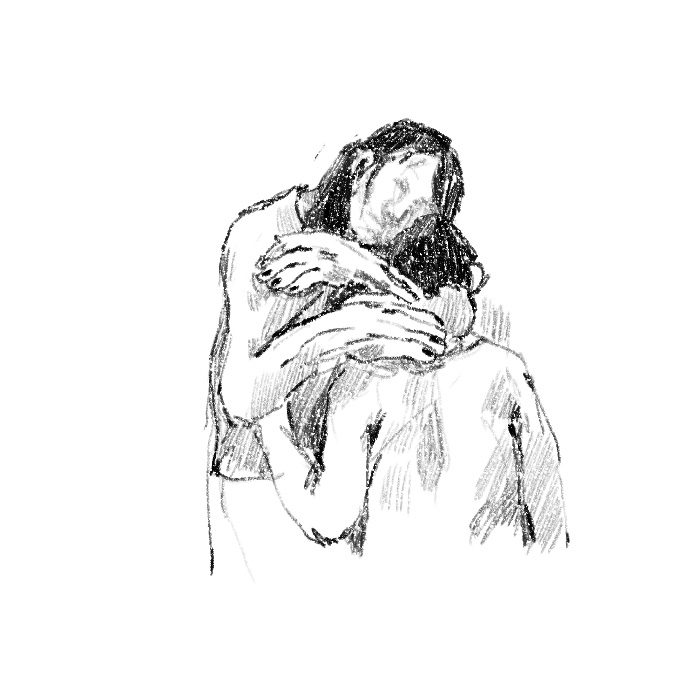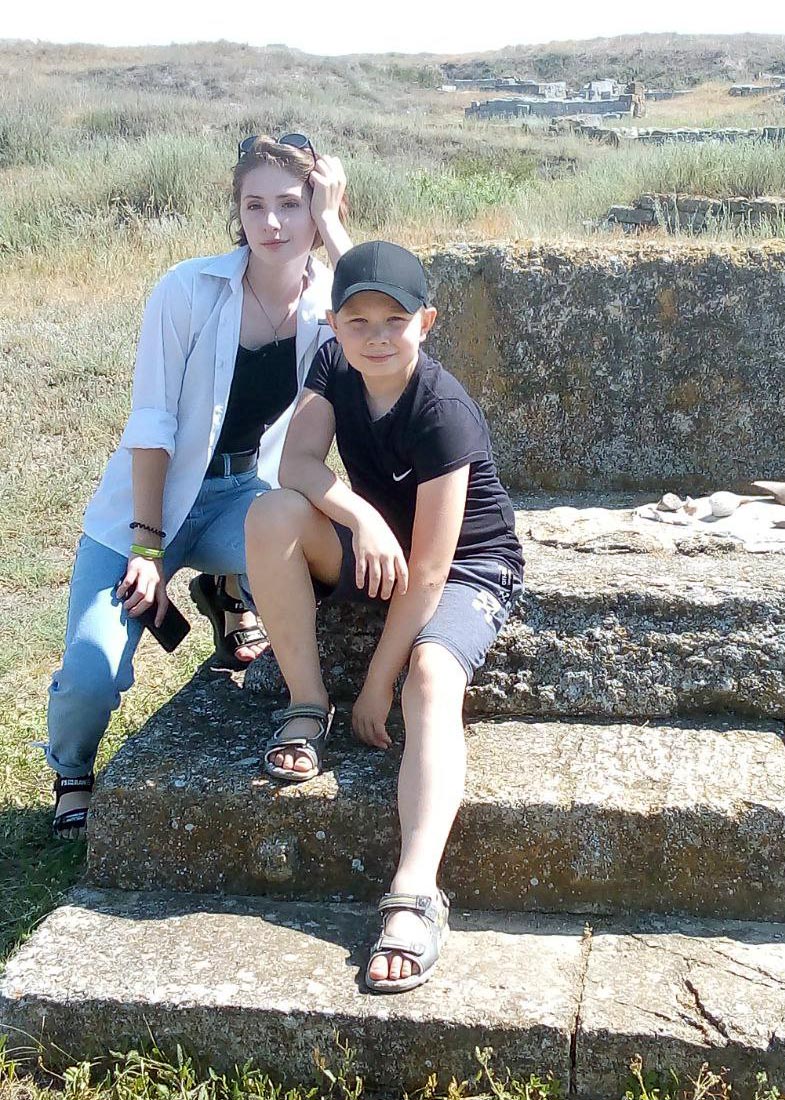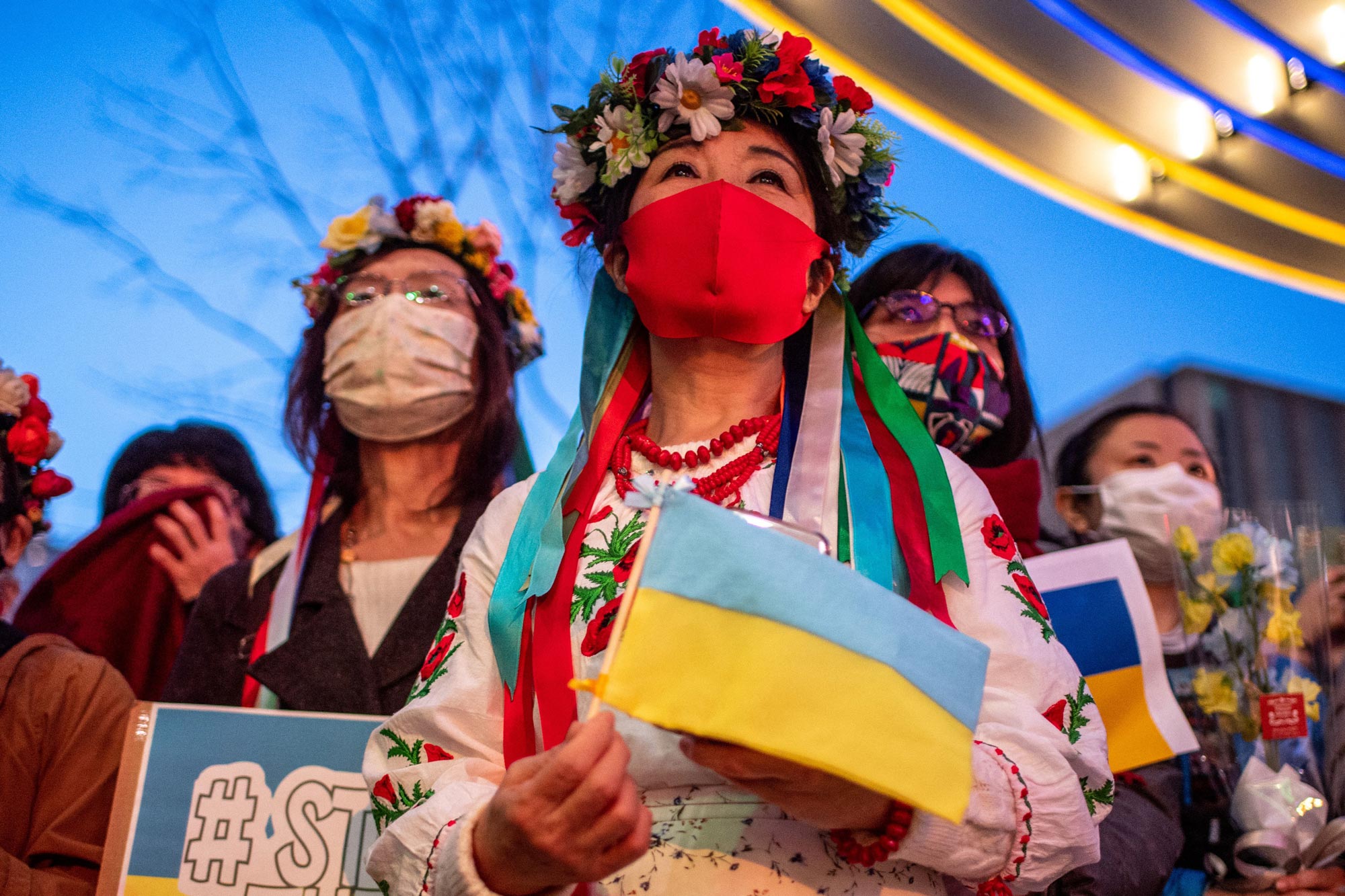Russia started the war in Ukraine in 2014, when it occupied Crimea and part of Donbas. For most Ukrainians, these events have become part of adult life, but for the youth, Russian aggression continues throughout their childhood and adolescence. In 2022, young people who left the occupied territories met with Russian aggression for the second time.
Zaborona journalist Anastasiya Opryshchenko reports about how the younger generation of Ukrainians is going through the war, what teenagers aspire to and whether Ukraine is threatened by a shortage of specialists if young people stay abroad.
Maksym, 16 years old
Maksym has lived in Donetsk since childhood. A year ago, the boy moved to Kyiv and entered the College of the European University because he “wanted to leave Donetsk for a civilized country.” Only his mother remained in Donetsk. She has pro-Russian views, so they hardly talked about the situation in the country. In Kyiv, Maksym started working as a programmer and planned to become a freelancer to earn money remotely from any city. However, the war made its adjustments to his plans.
-

Illustration: Kateryna Kruhlyk / Zaborona
Maksym recalls: when the war broke out in 2014, he was not afraid because he did not understand what was happening. According to the guy, this is what helped him not to experience more stress in a full-scale invasion. “This is my second war, so I met the events of February 24 normally, without panic. The perception of the war became even too calm. There was a feeling that nothing had changed,” Maksym told Zaborona. The war caught the guy in a dormitory. After the first explosions in Kyiv, he moved to his sister, but within a month the situation became more complicated and they left for Germany.
“During the first month in Germany, I did not understand what would happen next and how to live now. But I was also shocked by the spirit of Ukrainians. I never thought I would see such unity and courage,” says Maksym. “How did you understand the unity of Ukrainians? Simply. I saw queues of people wanting to defend their homeland in [Ukrainian] military registration and enlistment offices. When I lived in Donetsk, the separatists didn’t even smell like that.” In Germany, Maksym went to a local school and tried to study further. Before that, the guy admits, he didn’t do anything at all and was waiting for some “miracle” – for everything to end and return to its place. But then he realized that he would stay abroad for a while. In his free time, Maksym continues to study – he attends language courses with Ukrainians. He also participates in rallies in support of Ukraine almost every day (Zaborona wrote here about how Ukrainian families were forced to go abroad).
-

Billboard explaining how to get to the reception center for Ukrainian refugees. Cologne Central Station, Germany, May 20, 2022. Photo: Horst Galuschka / picture alliance via Getty Images
“After I left Ukraine and went to a local school, I had to drop out of my previous educational institution. I physically could not withstand education in several places at once. After being expelled, I have nowhere to return to in Kyiv. I definitely want to complete my studies here, maybe work a little and return to Ukraine. If I can help my country when I return, I will be glad. But I can’t think of anything further,” says Maksym.
And the guy really wants Donetsk to come under the control of Ukraine again: “Russia has done nothing there for almost ten years. Only destruction and war. It is especially unfortunate for the symbol of Donetsk – Donbas Arena, which they do not even want to repair.
What is happening with education today?
The situation with education is not easy now. It cannot be compared to what happened even during the pandemic, explains Yulia Nazarenko, an analyst and manager of the Cedos analytical center, in a conversation with Zaborona. According to her, even during the pandemic, the Ukrainian education system suffered significant losses, but due to Russian aggression, they are much greater. We are talking about lagging behind in the educational process, poor learning due to stress and technical insecurity, or even skipping the curriculum in those territories where active hostilities are still ongoing.
“Unfortunately, we still do not have any research on the educational losses caused by the coronavirus in Ukraine. But we know for sure that they are. This is evidenced by the World Bank study, which summarizes the experience of 157 countries. It showed that the education losses range from three to nine months of the school year. At the beginning of the war, the education process was generally absent where active hostilities were waged. We understand that studies there may not be taking place until now,” Nazarenko said.
The expert notes that distance learning impairs the quality of education due to various technical features – in particular due to the lack of the Internet or gadgets. During the evacuation, people could lose their personal equipment, which effectively deprived them of the opportunity to study. At the same time, internally displaced persons could live in inconvenient conditions, such as in the gym. In such cases, we are not talking about quality education, even if people are technically equipped.
Liliya, 23 years old
Liliya was born in Donetsk. She received secondary and higher education – was going to be an accountant. However, the girl always wanted to draw, create animation. So during her studies she worked for three years in an art shop, where, in particular, she designed handmade products and printed stickers.

Illustration: Kateryna Kruhlyk / Zaborona
Liliya tells Zaborona that the Russian aggression in 2014 was a catastrophe for her. Then the girl just finished 9th grade, and she was surprised that many people suddenly became fans of the idea of unification with Russia.
-

Pro-Russian activists burn portraits and uniforms of prosecutors general after the prosecutor’s office was seized in Donetsk on May 1, 2014. Photo: ALEXANDER KHUDOTEPLY / AFP via Getty Images
“You could often hear from adults and even children that we will now unite and be as cool as Crimea. People often criticized Donetsk for providing the whole country with coal. I still remember how some people went to the referendum as a holiday, but in a few years they realized that everything got worse and even fell below the bottom line,” Liliya recalls.
After the referendum, Liliya ‘s life and personal plans changed dramatically. At first she and her mother went to Dnipro, and later they moved to Kyiv and rented an apartment from relatives. In the capital, Liliya graduated and tried to enter the university. But her mother decided everything for her and took her home to Donetsk, saying, “It will be better there.”
During the conversation, Liliya reluctantly recalls this period of her life. In Donetsk, she could only enter a medical college or technical school (Zaborona wrote about education in the occupied regions here). In the end, the girl chose the latter. Six months later, Liliya found a specialty in Kyiv that she really wanted to enter, but her mother forced her to go to university and finish her studies in Donetsk, although the girl could not stand it and tried to take documents from the institution. But they were not given away: permission from the parents was needed, and the mother refused to give it.
-

Pro-Russian separatists take part in a parade in honor of Victory Day in World War II, Donetsk, May 9, 2017. Photo: ALEKSEY FILIPPOV / AFP via Getty Images
“All these forced studies, which I didn’t want to, didn’t have a very good effect on my mental health. Sometimes I had suicidal thoughts. So after trying to take the documents, I just found a job and stopped going to school. That’s how I graduated, almost without coming to the university,” says Liliya.
The girl recalls that even after the referendum, life in the occupied territories was quite peaceful. Although sometimes the shelling was well heard outside the city: “In 2017, there was a moment when there was a very active shooting. Before that, I broke my arm, and all my memory of that period is like that – most of the day I sit in the hallway with a broken arm. And one night I woke up to a disgusting long sound – a very long one, like an ultrasound. The next day it became known that Tochka-U was launched from Budionovsky district. I will never forget this disgusting sound.”
-

Donetsk, Ukraine, December 31, 2016. Photo: Celestino Arce / NurPhoto via Getty Images
In 2021, Liliya met a guy and later moved to live and work with him in Rostov. She planned to go to university or at least take animation courses. However, in February 2022, there were many alarming reports, and then the evacuation from the occupied territories began. Liliya was very worried about the news, she had nightmares. All her relatives remained in Donetsk. They could not leave: grandparents could not stand the trip. And on February 24 the guy woke Liliya up with the words: “Wake up, the war has begun.”
“The month passed in a blur, each morning began with re-reading the news and daily shock. All this had a bad effect on mental health. I thought about all my plans with pain. One of the most painful was a vacation that included a trip to Ukraine. Later, my boyfriend and I moved to Georgia. Now we are thinking how to at least persuade parents to leave Donetsk,” says Liliya. “In general, I feel very strange: I’m kind of safe, but almost completely dependent on the guy. I constantly think that someone is in much worse conditions, and I do not deserve a normal life and its planning. Now is the time to build a better future, but I don’t know what I should do with it at all. Before, everything was decided for me, but then suddenly I can really manage my life.”
Now Liliya still dreams of entering a university in Ukraine and getting a better education. She also dreams of her own graphic project or full-fledged animation: “In general, I really want to finally settle down and live my life in peace in my native country, which is no longer attacked by any psychopaths.”
-

Illustration by Liliya, made during the war
How to help your child adapt abroad?
The most unpleasant thing that can happen to children is maladaptation, explains Olena Lytvynenko, PhD in Psychology. As a result of maladaptation, some necessary functions may disappear, while unnecessary ones may appear. For example, a child knew how to do something but suddenly stopped: talking, reading. If a child fell asleep on his own before moving or being evacuated, but now cannot, it is maladaptation. In adolescents, this symptom manifests itself in the same way. The child simply cannot show independence, especially if he demonstrated it before.
Lytvynenko emphasizes that the symptoms of maladaptation can be aggression and detachment. However, they should be considered only if they arose suddenly and were not present before. According to the norm, in a month all these changes should disappear in small or school-age children. In adolescents, this can take about two months. In fact, the symptoms disappear in 1-2 months after the restoration of safety.
“Basically, children have enough resources to cope with stress and adapt to change on their own. To do this, parents just need to move away from the child and not disturb him, do not fuss. Then 80-85% of children recover normally on their own. If your child does not want to study or leave the house, just let him do this. It is important to satisfy children during this period: to allow them to eat more sweets, to fill their day with positive emotions and, of course, not to touch them once again,” the expert emphasizes.
Viktoria, 22 years old
In order to prevent young people from wasting time and encourage them to develop and socialize, many parents who have gone abroad send their children to local schools and universities. Also, many countries now offer Ukrainians convenient programs for admission to educational institutions. 22-year-old Viktoria from Kryvyi Rih knows this very well. In Kyiv, she studied at the Faculty of Oriental Studies of KNLU and worked in a foreign company as a quality control agent.
-

Illustration: Kateryna Kruhlyk / Zaborona
Last year, Viktoria made plans for 2022: gym, treatment, extra work, training. She dreamed of moving to another place. However, in January she began to think about a possible departure from Kyiv – in case of danger. That’s what happened in the end. On February 24, the girl left Kyiv with great difficulty and spent a month in Kryvyi Rih.
“At first I was very worried about my friends and family, but then it became easier after realizing that everything is not so bad [in our region]. The family insisted that I take my younger [13-year-old] brother Serhiy and go abroad, but we both didn’t want to. I realized how much I needed to give up and then start all over again. I’m glad that at least my brother feels fine. At the beginning of the war I was nervous, and he began to imitate me – we went to bed in clothes. Now Serhiy is quietly doing his business, studying and helping his parents around the house,” she said in a conversation with Zaborona.
-

Viktoria with her brother Serhiy
Viktoria explains that she has a delayed life syndrome. For a long time she did not want to do anything, sometimes she saw friends, looking for work. The girl recently returned to Kyiv and is now constantly nervous that she will have to run home again.
“Now the situation is a little better, I stopped monitoring the news so much. I volunteered – translated into Japanese the video for “1 + 1″. Then I decided to achieve my goal and applied to study at a Japanese private school. I was able to achieve it in part through the war in Ukraine. Now it is much easier with such programs, Japan is actively helping in terms of training and development of relations between our countries. The main thing is to pass an interview. But, to be honest, I would rather not go this year – if only there was no war,” says Viktoria.
-

Love Against Wars concert in support of Ukraine in Ikebukuro, Tokyo, March 11, 2022. Photo: PHILIP FONG / AFP via Getty Images
Viktoria says that she is currently waiting for the official confirmation of the admission documents from the school. The girl emphasizes that she planned her future abroad before the war, but is going to return to Ukraine often. Now she wants to study and settle down so that she can take her family or support them from abroad. “Of course, I’m scared to leave them here,” says Viktoria. “If there is an opportunity to help – I will. Now I’m teaching, maybe later it will work out too. In the future, I want to live in peace again, see friends and family. It is still difficult to talk about the prospects, because everything is in a suspended state. In today’s situation relatives can call at any moment and say that my brother and I need to leave the country.”
What will happen if the war drags on?
According to Yulia Nazarenko, an analyst and manager of the Cedos analytical center, not all evacuees will be able to return to Ukraine. First of all, everything depends on how long the war will last. The longer it lasts, the longer people will stay abroad. Of course, some children can still continue their online education. However, children who study online in Ukraine and full-time at school abroad receive additional workload, which is not useful.
“There is a significant risk that children who have entered schools and universities in Europe have little chance of returning. Children integrate very quickly into local communities and may not return to Ukraine after the war or for several years. This is not a positive trend for Ukraine. These are the loss of scientific potential, the loss of the labor market and the loss of potential professionals. It is possible that in the future special reintegration programs will have to be developed for such people so that they can return to Ukraine from abroad,” Nazarenko added.
PhD in Psychology, therapist Olena Lytvynenko believes that it is thanks to the rapid adaptation that there should be no problems with the return of young people to Ukraine. However, it is important that parents correctly explain to their children the options of staying abroad and returning home.
“First of all, parents should determine what the future will look like, and then tell the child about it. If you decide to stay forever, explain it to your child. If you will go home for sure – explain this too. In all cases, it is important to tell the child clearly and honestly about the situation. Of course, he can resist and be against it for a while. But this is the mission of parents – to clearly outline the situation,” said the expert.

